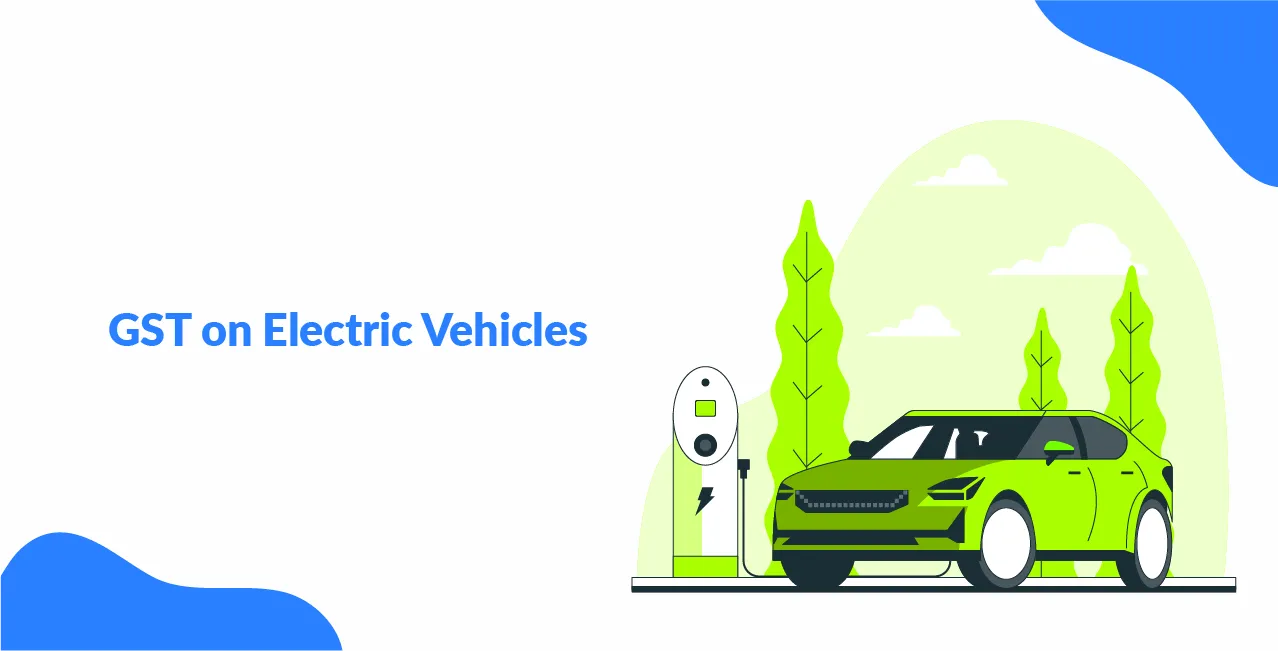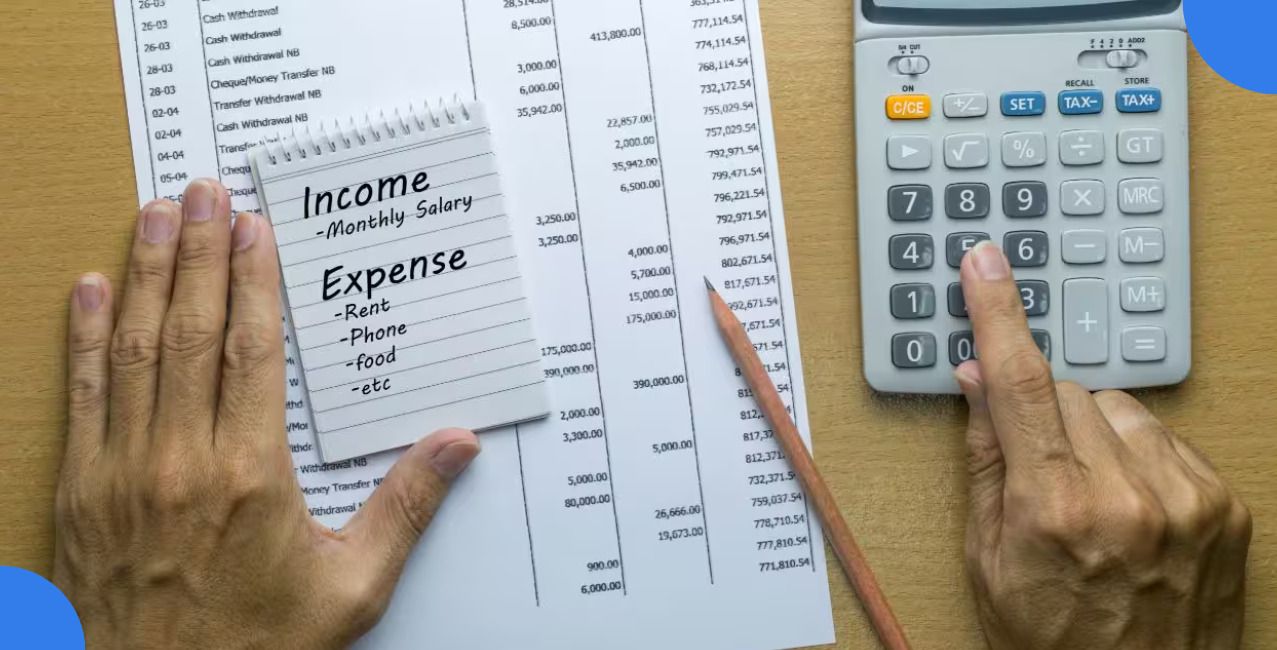GST on Electric Vehicles – Reduced Rates & Buyer Benefits

Check Your Loan Eligibility Now
By continuing, you agree to LoansJagat's Credit Report Terms of Use, Terms and Conditions, Privacy Policy, and authorize contact via Call, SMS, Email, or WhatsApp
The Goods and Services Tax (GST) is a tax added to the price of goods and services in India. To promote cleaner and greener transport, the Indian government has reduced the GST rate on electric vehicles.
For Example, Ravi, a delivery agent in Pune, switched from a petrol bike to an electric scooter in 2023. His monthly fuel costs decreased, and he used the savings to start a small Systematic Investment Plan (SIP). Within a year, his financial stability improved.
He now saves ₹3,300 monthly, helping him build wealth steadily.
GST Benefits and Pricing Across Electric Vehicle Categories in India
HSN Codes for Electric Vehicles and Components
How does GST affect Electric Cars and Bikes?
Imagine you want to buy a toy car. Some toys cost more because they have extra taxes added to their price. The same thing happens with real cars and bikes! Let's see how GST (a type of tax) makes electric vehicles cheaper than petrol ones.
Read More - EV Penny Stocks List for 2025
Tax Rates: Electric vs Petrol Vehicles
Why Electric Vehicles Pay Less Tax
The government wants people to buy electric vehicles because:
- They don't pollute the air (no smoke!)
- They're better for our planet
- They help keep the air clean for everyone
They made electric vehicles more affordable by charging lower taxes.
Real Examples
Example 1: Buying a Car
- Electric car costs ₹10,00,000 + 5% tax = ₹10,50,000 total
- Same-sized petrol car costs ₹10,00,000 + 28% tax = ₹12,80,000 total
- You save ₹2,30,000 by choosing electric!
Example 2: Buying a Scooter
- Electric scooter costs ₹1,00,000 + 5% tax = ₹1,05,000 total
- Petrol scooter costs ₹1,00,000 + 28% tax = ₹1,28,000 total
- You save ₹23,000 by choosing electric!
What Happened to Electric Vehicle Companies
Good Things:
- More people started buying electric vehicles because they became cheaper
- Companies like Tata Motors and Ola Electric sold many more vehicles
- New companies started making electric vehicles
Example: Tata Nexon Electric became very popular because it was much cheaper than petrol cars after the low GST rate.
What Happened to Petrol Vehicle Companies
Challenges:
- Their vehicles became more expensive compared to electric ones
- Fewer people wanted to buy petrol vehicles
- They had to start making electric vehicles, too
Example: Maruti Suzuki, which makes mostly petrol cars, had to start planning electric cars to stay competitive.
Impact on Families
Before GST Benefits:
- Electric vehicles were new and expensive
- Most families bought petrol vehicles
- Not many charging stations existed
After GST Benefits:
- Electric vehicles became affordable for middle-class families
- More families started considering electric options
- Companies built more charging stations
Real Family Example: The Sharma family wanted to buy a new car. With the low GST on electric cars, they chose a Tata Nexon Electric instead of a petrol car and saved ₹2,00,000, which they used for their daughter's education.
Changes in the Market
More Electric Vehicles:
- 2019: Only 1 out of 100 vehicles sold was electric
- 2024: 8 out of 100 vehicles sold are electric
- This happened mainly because of lower taxes!
New Companies: Many new companies started making electric vehicles:
- Ola Electric (scooters)
- Hero Electric (bikes)
- MG Motors (cars)
Charging Infrastructure Growth
Because more people bought electric vehicles, more charging stations were built:
- Shopping malls have charging points
- Petrol pumps added electric charging
- Housing societies installed chargers
Environmental Benefits
Cleaner Air:
- Less smoke from vehicles
- Quieter roads
- Better health for everyone
Example: Delhi's air became slightly cleaner as more people switched to electric vehicles, especially during winter months.
Problems That Still Exist
Also Read – Best EV Stocks in India
Challenges:
- Electric vehicles take time to charge (unlike filling petrol in 2 minutes)
- Not enough charging stations in all areas
- Some people still worry about battery life
Future Impact
What's Expected:
- Even more people will buy electric vehicles
- Petrol vehicles might become very rare
- Air will become much cleaner
- India might become a leader in making electric vehicles
Government's Goal: The government wants 30% of all vehicles to be electric by 2030. The low GST rate is helping achieve this goal.
Input Tax Credit on Electric Vehicles (EVs)
Input Tax Credit (ITC) means businesses can claim back the GST (Goods and Services Tax) they paid on purchases made for business use.
Can You Claim ITC on Electric Vehicles?
In general:
- For personal use: You cannot claim ITC on electric vehicles.
- For business use: You can claim ITC only if the vehicle is used for providing taxable services like:
- Passenger transport
- Rental services
- Logistics or courier services
Example:
If a company buys an electric car to provide cab services, it can claim input tax credit on the GST paid. But if a company buys an electric scooter for a director’s personal use, it cannot claim ITC.
Note: Always keep proper tax invoices and ensure the vehicle is registered in the business’s name to claim ITC.
Conclusion
GST on electric vehicles is lower than on petrol or diesel vehicles, making them more affordable. The government has reduced the GST rate to 5% to promote clean and green transport.
However, input tax credit (ITC) on electric vehicles is allowed only for business use, not for personal use. Businesses must use the vehicles for providing taxable services like transport or rentals to claim ITC.
This policy encourages the use of eco-friendly vehicles while preventing the misuse of tax benefits.
FAQ’s
1. What is the GST rate on electric vehicles?
The GST rate on electric vehicles is 5%, which is lower than the rate for petrol or diesel vehicles.
2. Can I claim input tax credit on an electric vehicle?
You can claim input tax credit only if the vehicle is used for providing taxable services, like transport or rental.
3. Is GST applicable on electric vehicle chargers too?
Yes, GST at the rate of 5% is also applicable on chargers and charging stations for electric vehicles.
4. Can individuals buying electric scooters for personal use claim ITC?
No, individuals cannot claim input tax credit for electric vehicles used for personal purposes.
5. Are electric buses used by transport companies eligible for ITC?
Yes, if they are used for providing taxable transport services, input tax credit is allowed.
Other Important GST Pages | ||||
About the author

LoansJagat Team
Contributor‘Simplify Finance for Everyone.’ This is the common goal of our team, as we try to explain any topic with relatable examples. From personal to business finance, managing EMIs to becoming debt-free, we do extensive research on each and every parameter, so you don’t have to. Scroll up and have a look at what 15+ years of experience in the BFSI sector looks like.
Subscribe Now
Related Blog Post

Salaried vs. Self-Employed: Who Gets a Personal Loan Faster in 2025?

Too Many EMIs? What to Do When Monthly Payments Become Unmanageable

Post Office Customer Care Number: Helpline & Support
Recent Blogs
All Topics
Contents
Quick Apply Loan
Consolidate your debts into one easy EMI.
Takes less than 2 minutes. No paperwork.
10 Lakhs+
Trusted Customers
2000 Cr+
Loans Disbursed
4.7/5
Google Reviews
20+
Banks & NBFCs Offers
Other services mentioned in this article





